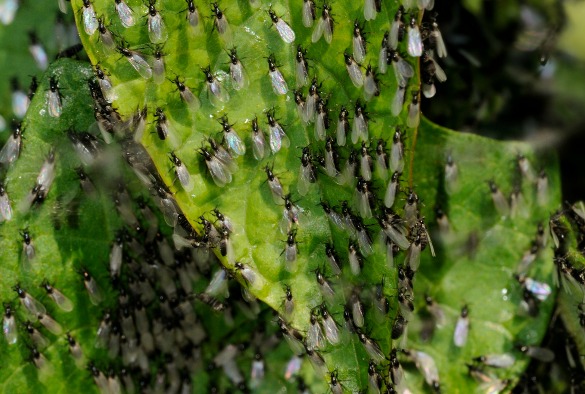
A University of Liverpool fellow, Dr Stefanos Siozios, has been awarded a £140K Horizon 2020 grant to investigate the potential of a novel way of preventing midge transmission of viruses to livestock.
The health of livestock is negatively affected by viruses acquired from midge bites. The viruses transferred following a bite cause considerable economic losses globally, including across the EU, making control of midges a pressing concern.
Interrupting transmission
Recent research has indicated that some bacterial symbionts (bacteria living inside another organism, such as a midge) can alter the ability of their insect host to acquire, maintain, and transmit viruses.
Dr Stefan Siozios, said: “Symbionts can sometimes function as a natural vaccination for the vector. This project seeks to understand this symbiotic relationship in midges, and investigate whether it affects host immune system activity and vector competence following exposure to an infection.”
Better understanding
Professor Greg Hurst, from the University’s Institute of Integrative Biology and a collaborator in the research, said: “A better understanding of this immensely complicated relationship between symbionts, insect and virus could help us prevent the spread of viruses to our livestock, improving both their health and productivity, and improving farming economies.”
Horizon 2020 is the biggest EU Research and Innovation programme with nearly €80 billion of funding available over seven years. It promises more breakthroughs, discoveries and world-firsts by taking great ideas from the lab to the market.
For more information about the project please visit http://bit.ly/1RjMCzn
